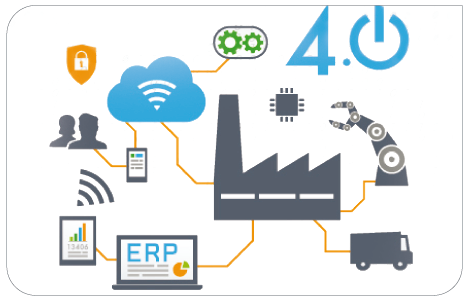Brett Parker SAP - The Fourth Industrial Revolution: a dangerous jungle or a fruitful forest?

1) The fourth industrial revolution as the next great "wave" of economic activity and innovation for good. Could you end our addiction to fossil fuels?
Subtitle
The effect that the integration of the different areas in which this revolution is developing may have, such as Cyber-Physical Systems, Additive Manufacturing, Cloud Computing, Collaborative Robotics, Big Data or Augmented Reality; especially with the integration between all of them, they will generate new developments of products, services or processes that will reduce fossil fuel needs. On the one hand, the use of the Internet of Things will cause greater traceability of the movement of materials and components that will generate a logistic optimization to reduce transport costs by minimizing the movement routes and their flows; but in addition, alternative technologies may be developed in the field of renewables by using additive manufacturing technologies that allow new products to be obtained more efficiently or with a systemic conception that is also different.
2) The Fourth Industrial Revolution as the convergence of digital, human and physical domains: what happens when software "eats the world"?
Subtitle
Perhaps one of the aspects that will have a greater impact on the destruction and creation of jobs. In Davos it was said that more than 7 million jobs were expected to disappear while it was anticipated that a little more than 2 million would be created so we will have a destruction of about five million jobs. But we must not believe that this will only affect low-skilled jobs because we will be wrong; This will affect the entire chain from warehouses through factories, offices and even at the managerial level.
3) The Fourth Industrial Revolution as a disruptor of existing power structures. The question of who wins and who loses is far from being resolved.
Subtitle
In all industrial revolutions there have been substitutions in which they hold the power for the "creative destruction" that have led to the technologies that came against existing ones. Now, as we still don't know what the winners are going to be, we don't know who it will affect, but what we can be sure of is that those who cling to their traditional “lifelong” businesses looking to prevent the arrival of new ones Due to pressure from politicians or administrations through the enactment of laws, they will see that in the long run the facts surpass them.
4) The fourth industrial revolution as a radical change in the future of work, education and skills. He is not the man against the machine ...
It will be necessary to reform education, at all levels, that allows the learning of the knowledge and skills necessary to avoid losing the train and staying outside the labor market to reach the maximum number of people possible. Especially those who are already working and are in danger of their current jobs should make the effort to train in the new technologies, so sector training plans will be necessary.
5) The Fourth Industrial Revolution as the trigger for a new set of norms around technology and humanity.
Subtitle
We change technology, technology changes us.
New technologies will need regulations to prevent misuse or improper use, but also to allow interconnection between different systems. Communication and data transmission protocols will be needed. But the field in which the greatest incidence will occur will be that of security because it will be necessary to ensure the safety of different technologies and their applications because if it is not going to be difficult for customers and consumers to buy the products and services that use them. Today we already see what malicious software means on mobile phones or personal computers.
But let's imagine what it would mean in vehicles without a driver, or in facilities connected and managed remotely by the network.
We have begun to walk along the path of the Fourth Industrial Revolution but we still don't know if it will be a dangerous jungle or a fruitful forest.